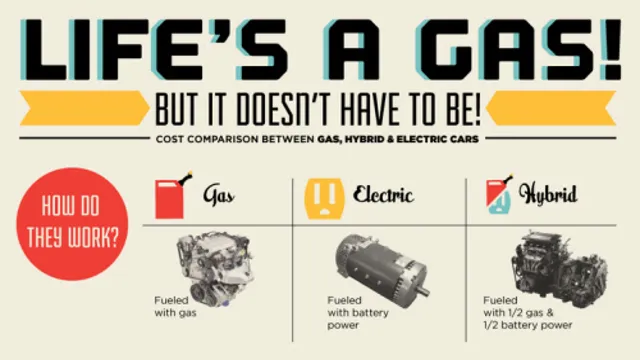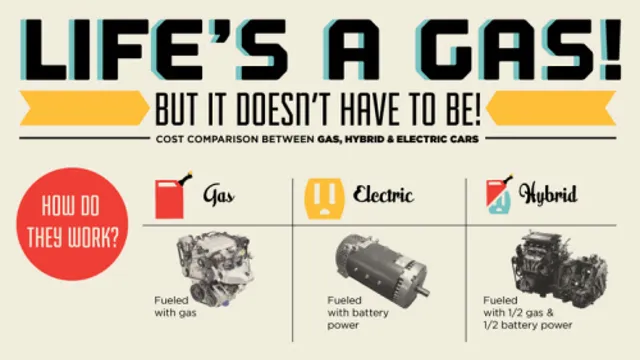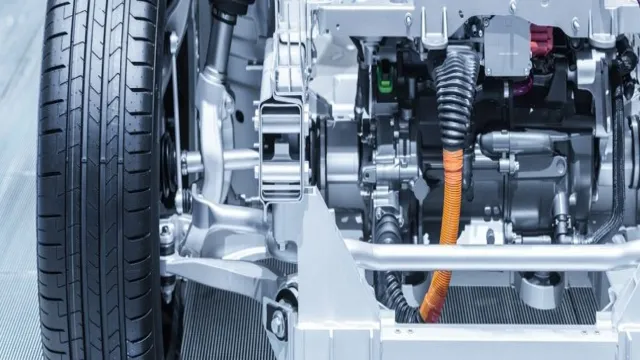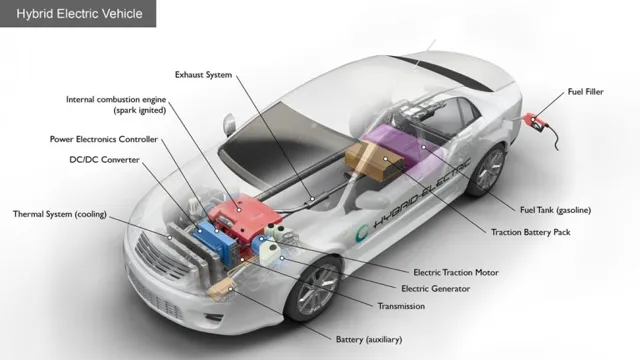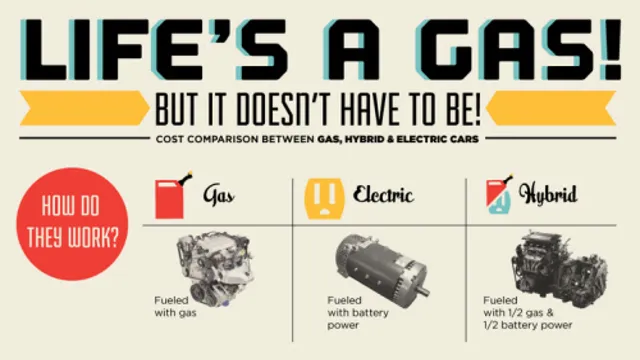Electric Cars vs. Gas Cars: Which One is More Cost-Effective to Maintain?
Electric vs Regular Car Maintenance Costs – Which is Better? As electric cars continue to dominate the automotive market, many car enthusiasts are left wondering whether this switch to electric makes sense financially. It is no secret that the initial cost of purchasing an electric car is higher than that of a regular car, but what about maintenance costs? Are electric cars cheaper to maintain in the long run? In this blog, we will break down the differences in maintenance costs between electric and regular cars, and identify which one may make more sense for your budget. From oil changes to battery life, we will provide an in-depth analysis to help you make an informed decision.
So let’s dive right in and find out which type of car is more financially feasible – electric or regular.
Initial Costs
When considering the cost to maintain an electric car versus a regular car, there are several factors to take into account. Initially, the cost of purchasing an electric car is typically higher than a traditional combustion engine car. However, electric cars have lower ongoing costs due to their simpler design and lower reliance on maintenance.
Electric cars don’t require oil changes, transmission repairs, or fuel filters and have fewer moving parts, resulting in fewer breakdowns. The cost of fueling an electric car is also considerably lower than a traditional car as electricity is cheaper than gasoline. Additionally, many states offer incentives such as tax credits and rebates to encourage the purchase of electric cars.
While the initial cost may be higher, the long-term savings of owning an electric car can make it a more cost-effective option in the long run.
Electric cars cost more upfront but have lower maintenance costs.
When it comes to buying an electric car, there’s no denying that the upfront cost is often higher than a traditional gas-powered vehicle. However, it’s important to look at the bigger picture – the long-term savings. While gas cars require regular oil changes, engine maintenance, and other costly repairs, electric vehicles have fewer moving parts and less maintenance overall.
As a result, you can expect lower maintenance costs over the lifetime of the car, which can offset the higher initial investment. It’s like investing in a high-quality pair of shoes that may cost more upfront, but save you money in the long run as you don’t have to replace them as often. Plus, electric cars often come with government incentives and can help save on fuel costs in the long run.
So, while it may be tempting to opt for a cheaper gas-powered car, sometimes spending a bit more upfront can actually save you money down the road.
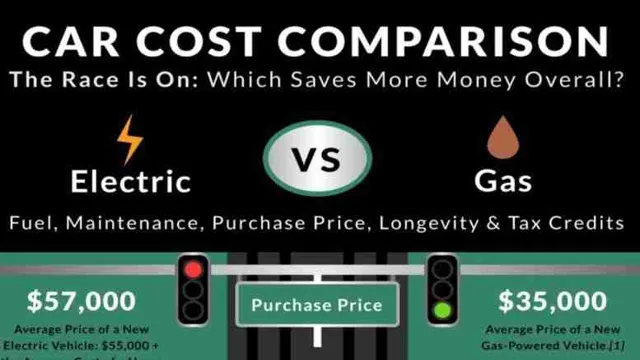
Regular cars have lower initial costs but higher maintenance costs.
When it comes to purchasing a car, one of the biggest considerations is the initial cost. Regular cars often have a lower initial cost compared to their luxury counterparts. This means that you can get a reliable, everyday car without breaking the bank.
However, it’s important to remember that buying a car is a long-term investment. Regular cars may come with a lower price tag, but they often have higher maintenance costs over time. From routine oil changes to major repairs, the cost of keeping a regular car running smoothly can quickly add up.
It’s important to factor in these additional costs when considering the initial purchase price of a regular car. While it may seem like a good deal at first, the long-term costs may end up outweighing the initial savings.
Routine Maintenance
When it comes to routine maintenance, electric cars definitely have an advantage over regular gas-powered cars. Since electric cars have fewer moving parts, they require less maintenance and fewer repairs. This not only saves you money, but it also saves you time and hassle.
Regular cars, on the other hand, come with a host of maintenance needs, from oil changes to spark plugs, from belts and filters to transmission flushes. All of these services can add up over time, increasing your overall cost of ownership. Additionally, gasoline-powered cars require more frequent visits to the mechanic, with the average driver needing to bring their car in for maintenance every three months or so.
With electric vehicles, you’ll typically only need to get maintenance done once or twice a year, which can be a major savings over the lifetime of the vehicle. Overall, when it comes to the cost to maintain electric car vs regular car, the electric car wins hands down.
Electric cars need less routine maintenance.
When it comes to routine maintenance, electric cars have a huge advantage over traditional gasoline cars. These vehicles do not require as much routine maintenance as conventional cars, which means that electric car owners can save time and money in the long run. With an electric car, there is no need to change the oil or replace the oil filter, and the transmission fluid and spark plugs do not need to be changed either.
Additionally, electric cars do not have as many moving parts as traditional cars, which means that there are fewer components that can break down and need repair. This translates to fewer visits to the mechanic and less money spent on repairs. Overall, the reduced need for routine maintenance is one of the many benefits of owning an electric car and is something that should be considered when making a decision about purchasing a new vehicle.
Regular cars need more routine maintenace, like oil changes and air filters.
Routine Maintenance Regular cars require more frequent routine maintenance compared to electric cars. These maintenance practices include oil changes, air filter replacements, and brake checkups. Oil changes are essential in keeping the engine in good condition by eliminating any impurities that may have accumulated in the oil system.
Air filters help keep the car’s interior free from harmful pollutants and maintain the car’s engine’s optimal performance. Regular maintenance ensures that your vehicle is operating safely and efficiently. For an internal combustion engine vehicle, regular maintenance is essential in preventing engine damage, which can occur when oil is not changed frequently or filters become clogged.
Failing to perform routine maintenance can lead to costly repairs and can even shorten the life of the vehicle. So, if you’re driving a regular car, make sure you regularly schedule maintenance appointments to keep it running efficiently.
Repairs
When it comes to maintaining an electric car versus a regular car, the cost breakdown can be quite different. On one hand, electric vehicles typically have fewer parts and require less maintenance overall, which can make them more affordable to maintain in the long run. However, the initial costs of repairing or replacing electric car parts can be much higher than those for traditional cars.
For example, a new battery pack for an electric car can cost several thousand dollars, while a new engine for a traditional car may cost less than half that amount. Additionally, because electric cars are still relatively new, there may be a limited number of mechanics who are trained to work on them, which can drive up repair costs. On the other hand, traditional cars may require more frequent oil changes and tune-ups, which can also add up over time.
Overall, the cost to maintain an electric car versus a regular car will depend on a variety of factors, including the make and model of the vehicle, how often it is driven, and how well it is maintained over time.
Electric car parts are more expensive to repair.
As the world moves towards electric cars, it’s essential to understand the costs associated with them. One significant difference between electric and traditional vehicles is the expenses involved in repairing them. Electric car parts are more expensive to repair than their gas-powered counterparts.
Since electric vehicles are still relatively new, the parts are not as readily available as those for internal combustion engines. In addition, the technology used in electric vehicles is complex, involving sophisticated computer systems and batteries. Such intricate systems require technicians with specialized skills.
But here’s the silver lining: electric cars require less maintenance, which offset some of the repair costs. Furthermore, manufacturers offer extended warranties and incentives to ensure the overall cost of ownership remains reasonable. It’s worth keeping in mind that preventative maintenance is key to keeping repair costs low.
So if you own an electric car, get regular check-ups, and attend to any issues promptly before they escalate into something more severe.
Regular car parts are less expensive to repair.
When it comes to car repairs, it’s no secret that regular car parts are less expensive to repair than those of luxury vehicles. The cost of repairs for luxury cars can be astronomical due to the price of the parts, and the expertise needed to repair them. Regular cars, on the other hand, have parts that are readily available and easier to fix, which makes it more affordable for car owners in the long run.
It’s important to note that regular cars also tend to be more reliable, which means fewer repairs are needed overall. However, that doesn’t mean regular cars are immune to faults. Wear and tear can still cause damage to regular car parts, but replacing them won’t break the bank.
In conclusion, if you’re looking to keep the cost of car repairs to a minimum, a regular car is a smart choice.
Fuel Costs
When it comes to the cost to maintain an electric car compared to a regular car, one of the biggest factors is fuel costs. Electric cars don’t require gas to run, which means you can save a significant amount of money on fuel expenses. While the overall cost of an electric car may be higher initially, the amount you save on fuel can offset these costs in the long run.
Plus, electric cars tend to be more energy-efficient than regular cars, which means you’ll get more mileage on a single charge. With fewer stops at the gas station and lower fuel costs overall, electric cars can be a smart financial choice for drivers looking to save money in the long term. If you’re considering making the switch to an electric car, it’s worth doing the math and seeing just how much you could save on fuel costs alone.
Electric cars are more energy efficient, resulting in lower fuel costs.
When it comes to fuel costs for cars, electric vehicles reign supreme. These cars are much more energy-efficient compared to traditional gasoline vehicles, meaning you can save a lot of money at the pumps in the long run. Electric vehicles can travel further on a single charge than gasoline vehicles can on a tank of gas, and they also have much less maintenance requirements.
Plus, with more and more charging stations being installed across the country, charging up your electric car is becoming easier and more convenient. While the initial cost of buying an electric vehicle may be higher, the savings you will make on fuel costs can easily make up for it over time. Not only will you save money, but you will also be helping the environment by reducing your carbon emissions.
So, if you’re looking for a more cost-effective and environmentally friendly way to travel, an electric car might just be the right choice for you.
Regular cars have higher fuel costs because of gasoline prices.
When it comes to fuel costs, regular cars can be quite expensive to maintain due to the constantly fluctuating gasoline prices. You may not notice it on a day-to-day basis, but those little trips to the grocery store or morning commutes can add up over time. However, there are ways to mitigate some of these expenses.
Consider carpooling with coworkers or opting for public transportation to cut back on daily fuel consumption. You can also take your car to a mechanic for regular tune-ups and maintenance to ensure it’s running efficiently and not wasting fuel. Additionally, consider investing in a hybrid or electric car, which can greatly reduce fuel costs in the long run.
While it may require an upfront investment, it can pay off in savings on fuel expenses down the line. So, while regular cars may be more expensive to fuel, there are ways to minimize those costs and make your investment in a car worth it.
Conclusion
In the battle of cost to maintain electric car vs regular car, it’s clear that electric cars come out on top. While regular cars require frequent trips to the gas station and expensive oil changes, electric cars only need occasional battery replacements and simple maintenance. Not to mention, the cost of electricity is often much lower than gasoline.
So, if you’re looking for a savvy and eco-friendly way to get around, an electric car may just be your ticket to ride.”
FAQs
What is the average cost to maintain an electric car compared to a regular car?
Electric cars have lower maintenance costs than regular cars since they have fewer moving parts. According to Consumer Reports, electric cars can save an average of $4,600 in maintenance costs over their lifetime compared to gas cars.
What types of maintenance do electric cars require?
Most electric cars require regular tire rotations, brake pad replacements, and cabin air filter changes. However, they don’t need oil changes, spark plug replacements, or emissions testing like gas cars.
Does the cost of electricity for charging an electric car offset the maintenance savings?
The cost of electricity for charging an electric car is usually lower than the cost of gas for a regular car, making it more cost-effective over time. Plus, the maintenance savings of an electric car can help offset the slightly higher initial purchase price.
Are there any special considerations for maintaining an electric car battery?
Electric car batteries require some maintenance, such as keeping them within a specific temperature range and avoiding overcharging or draining the battery too much. However, most electric car batteries are designed to last for many years with minimal maintenance.
